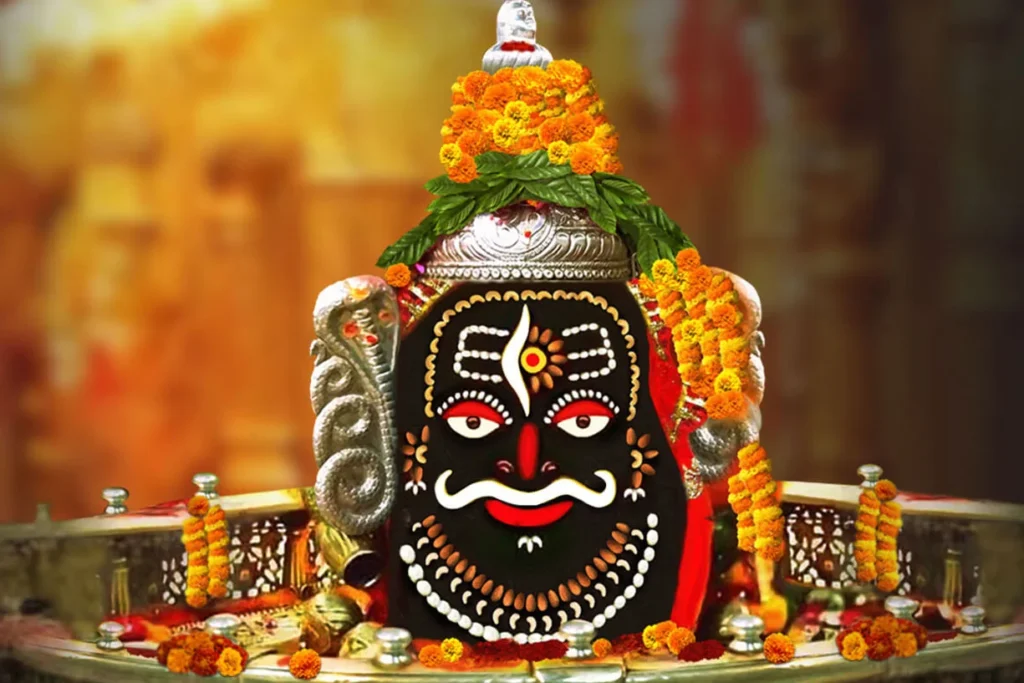The Ujjain Mahakal Temple, nestled in the ancient city of Ujjain in Madhya Pradesh, India, stands as a monumental symbol of spiritual magnificence and historical grandeur. Revered as one of the twelve Jyotirlingas — the holiest shrines dedicated to Lord Shiva — the Mahakal Temple holds a unique place in the heart of devotees and spiritual seekers worldwide. The temple’s distinctive architecture, sacred rituals, and timeless legends make it an unparalleled center of Hindu worship and cultural heritage.
Historical Significance
The roots of the Mahakal Temple stretch deep into the annals of time. References to the temple can be found in ancient texts like the Puranas, which illustrate its importance in the spiritual landscape of India. The city of Ujjain itself, known as Avantika in ancient times, was a prominent center for learning, astronomy, and religion.
It is believed that the original temple was built during the pre-Mauryan period, and over the centuries, it has witnessed numerous invasions and reconstructions. The present structure was largely renovated in the 18th century by the Maratha ruler Ranoji Shinde, and subsequent rulers contributed to its restoration and expansion.
Architectural Marvel
The Mahakal Temple’s architecture reflects a harmonious blend of Bhumija, Chalukya, and Maratha styles. Built with intricately carved stones, the temple exudes an aura of divine artistry. The sanctum sanctorum houses the Mahakaleshwar Jyotirlinga, which is believed to be self-manifested — a Swayambhu — unlike other Jyotirlingas.
One of the temple’s most striking features is its towering spire (Shikhara) and its exquisitely sculpted pillars. The ambiance within the temple premises resonates with the rhythmic chants of Vedic hymns and the melodious sounds of bells, creating a deeply spiritual atmosphere.
Spiritual Importance
The Mahakal Temple is not just an architectural wonder; it is a hub of profound spiritual energy. Devotees believe that the Mahakal Jyotirlinga embodies the power of destruction and regeneration, representing Lord Shiva’s role as the ultimate cosmic force.
One of the temple’s most unique aspects is the Bhasma Aarti, performed at the break of dawn. This ritual involves offering sacred ash to the Shiva Lingam, symbolizing life’s transient nature. Witnessing the Bhasma Aarti is considered a rare and highly auspicious experience.
Legends and Myths
The Mahakal Temple is steeped in mythology. According to one popular legend, the demon king Dushana wreaked havoc in Ujjain, and the citizens prayed fervently to Lord Shiva for deliverance. In response, Shiva appeared and vanquished the demon, manifesting himself as the Mahakal Jyotirlinga.
Another tale speaks of the eternal presence of Lord Shiva in Ujjain, ensuring the city’s protection and prosperity. This belief underscores the deep-rooted faith that the Mahakal Temple is an eternal source of divine power.
Festivals and Celebrations
The temple comes alive during Mahashivaratri, celebrated with unparalleled enthusiasm and devotion. Thousands of pilgrims gather to participate in night-long vigils, chanting hymns and offering prayers. Other significant festivals include Nag Panchami, Shravan Maas, and Kartik Month celebrations.
The temple also hosts the Kumbh Mela every 12 years, drawing millions of devotees from across the globe. This grand congregation underscores the Mahakal Temple’s importance as a spiritual epicenter.
Visiting the Mahakal Temple
Pilgrims visiting the Mahakal Temple often describe it as a transformative experience. The temple opens early in the morning, with the Bhasma Aarti being the most sought-after event. To witness this, devotees need to book in advance due to its immense popularity.
The temple is well-connected by road, rail, and air, making it accessible from major Indian cities. Ujjain itself offers numerous other spiritual and historical sites, such as the Kal Bhairav Temple, Harsiddhi Temple, and the Ram Ghat on the banks of the sacred Shipra River.
Conclusion
The Ujjain Mahakal Temple is not just a place of worship; it is a confluence of faith, history, and divinity. Its spiritual significance, architectural brilliance, and the mystical aura of the Jyotirlinga make it one of the most revered and visited temples in India. A journey to this sacred abode offers a deep connection with the divine and an opportunity to experience India’s rich cultural and spiritual heritage. For those seeking solace, enlightenment, or a glimpse of eternity, the Mahakal Temple remains an eternal beacon of Lord Shiva’s boundless power and grace.
